
Reading Time: 6 minutes
Ah, the satisfaction of DIY car maintenance! It can save you a pretty penny and give you that awesome “I did it myself” feeling. But let’s be real: sometimes, it’s best to leave the wrench-wielding to the pros. In this comprehensive guide, we’ll discuss the benefits and limitations of DIY car maintenance, provide helpful tips for beginners and advanced DIYers, and help you understand when it’s time to call a mechanic.
The Ups and Downs of DIY Car Maintenance
Everyone loves a good project, and DIY car maintenance is no exception. But before you dive under the hood, let’s weigh the pros and cons of tackling car maintenance on your own.
👍 Benefits of DIY Car Maintenance:
- Cost savings: Doing it yourself can save you money on labor and parts.
- Personal satisfaction: There’s a sense of accomplishment when you fix your car yourself.
- Learning experience: You can gain valuable knowledge about your car and its workings, making you a more informed car owner.
👎 Limitations of DIY Car Maintenance:
- Lack of experience: Without proper training, you might make mistakes or take longer to fix the problem.
- Limited tools: Professional mechanics have specialized tools that you might not have access to.
- Risk of damage: DIY repairs can lead to further damage if not done correctly.
The bottom line is, DIY car maintenance can be a great way to save money and learn more about your vehicle, but it’s important to know your limits and not take on tasks beyond your skill level. It is a good idea to keep record of your car maintenance!
Getting Started: DIY Car Maintenance Tasks for Beginners
If you’re new to DIY car maintenance, don’t worry! There are plenty of easy tasks you can tackle to get your feet wet and start learning the ropes.
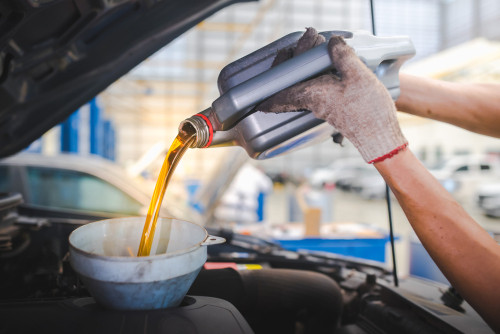
Changing the oil
Regular oil changes are essential to keep your engine running smoothly. This is a straightforward task that can save you money and help you become familiar with your car’s engine.
Read our guide to changing your oil and filters here…
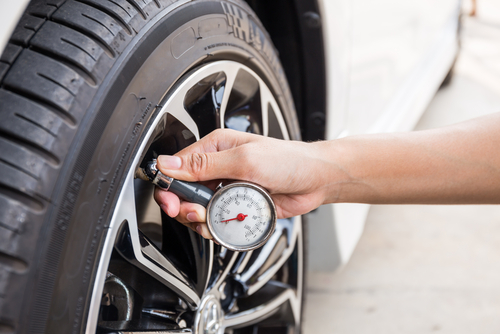
Checking tire pressure
Maintaining proper tire pressure is crucial for your car’s performance and safety. Get yourself a tire pressure gauge and check your tires monthly to ensure they’re inflated to the correct level if you prefer DIY car maintenance.
Learning how to avoid a blowout is key to a successful roadtrip…
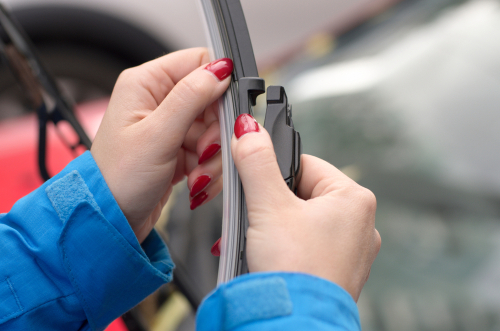
Replacing wiper blades
Worn-out wiper blades can be a real pain in the rain. Luckily, replacing them is a simple task that can make a world of difference in your driving experience.
Safety DIY tip: Always consult your car’s owner manual for the correct procedures and recommended products.
Taking It Up a Notch: DIY Car Maintenance Tips for Advanced DIYers
Ready to tackle something a bit more challenging? These advanced tasks will put your DIY car maintenance skills to the test:
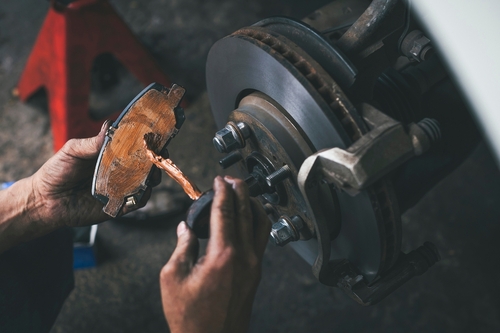
Replacing brake pads
Worn brake pads can reduce your car’s stopping power, making it a crucial maintenance task. While it’s more advanced than other DIY tasks, it can be done with the right tools and some patience.
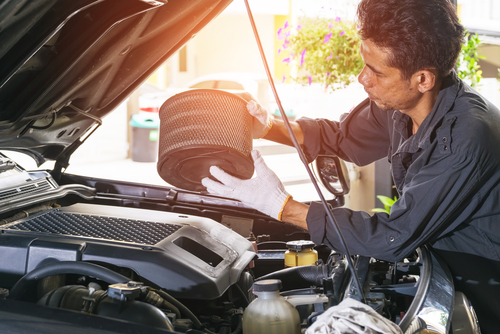
Changing the air filter
A dirty air filter can reduce your engine’s efficiency and performance. Replacing it is a great way to boost your car’s health and learn more about its inner workings.
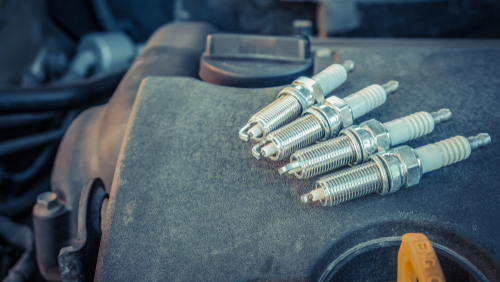
Replacing spark plugs
Old or damaged spark plugs can lead to engine misfires and reduced fuel efficiency. This is a more advanced task, but with the proper tools and some research, you can tackle it yourself.
Safety tip: Wear protective gear and use the right tools for the job. And, when in doubt, consult a professional mechanic.
Recognizing the Red Flags: When to Seek Professional Mechanic Help
No matter how skilled you are, there will always be times when it’s best to seek the help of a professional mechanic. Here are some warning signs that indicate it’s time to hang up your DIY car maintenance cap and call in the pros:
Learn to Navigate the Auto Shipping Quote Process.

Unusual noises
If your car is making strange or unfamiliar sounds, it could be a sign of a serious issue that requires a mechanic’s expertise.
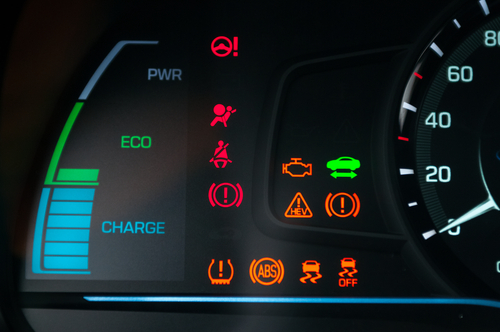
Warning lights on the dashboard
When your dashboard lights up like a Christmas tree, it’s usually a sign that something’s amiss. Don’t ignore those warning lights; consult a professional for a proper diagnosis.
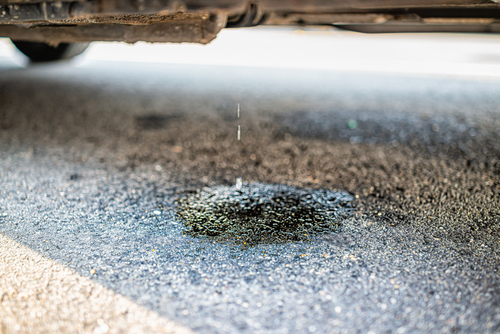
Fluid leaks
Leaking fluids can indicate various problems, from a simple loose hose to a more severe issue. If you’re unsure about the source or severity of the leak, it’s best to have a mechanic take a look.
Remember, seeking professional help for complex car problems or when you’re not comfortable with DIY car maintenance is always the safest option. Plus, professional mechanics have the experience, specialized tools, and warranties to back up their work.
The Art of Balancing DIY and Professional Car Maintenance
Knowing when to DIY and when to call a mechanic is all about striking the right balance. Here are some tips to help you navigate the world of DIY car maintenance without going overboard:
- Assess your skills: Be honest with yourself about your abilities. If you’re not confident in your skills or knowledge, it’s better to leave the task to a professional.
- Do your research: Read your car’s owner manual, watch tutorials, and consult reputable resources to gain a better understanding of the maintenance tasks you’re considering.
- Invest in quality tools: Having the right tools for the job can make all the difference in the success and safety of your DIY car maintenance efforts.
- Know when to call it quits: If you’re struggling with a repair or feeling overwhelmed, don’t be afraid to step back and call a mechanic. There’s no shame in knowing your limits.
Striking the Perfect Balance in DIY Car Maintenance
DIY car maintenance can undoubtedly save you money, especially if you know what you’re doing. However, it’s essential to recognize when it’s best to leave repairs to the professionals to avoid exacerbating existing issues or creating new ones. Remember, sometimes saving money means knowing when not to dive into DIY remedies.
Poor car maintenance can indeed lead to accidents, with an average of 45,000 accidents per year caused by vehicle malfunctions, according to the National Highway Traffic Safety Administration (NHTSA). Two key car maintenance issues that are the most dangerous include worn-out or improperly inflated tires and infrequent oil changes. The NHTSA estimates that 35% of accidents caused by cars in disrepair happen due to bad tires. To avoid tire-related accidents, it’s crucial to check your tire pressure monthly, inspect the tread every three months, and have your tires checked if they’re older than five years. In addition, regular oil changes (every 3,000 to 5,000 miles) are essential to prevent serious engine problems that could lead to accidents.

The costs of such a journey – including time, accommodation, fuel, and the risk of wear and tear or breakdowns – can quickly add up. Instead of taking the risk, consider shipping your car with a reliable auto transport company.
By choosing to ship your car, you can eliminate the risks associated with long-distance driving and potential breakdowns on busy highways. Nationwide Auto Transportation offers a safe and secure way to transport your vehicle, ensuring it reaches your destination without any additional wear and tear. And as a bonus, you can save 20% on your first shipment with Nationwide Auto Transportation.
So, embrace the world of DIY car maintenance, but know when to step back and seek professional help or alternative solutions. By finding the right balance, you can keep your car in top condition while still enjoying the satisfaction and cost savings of a well-maintained vehicle. Safe travels!



